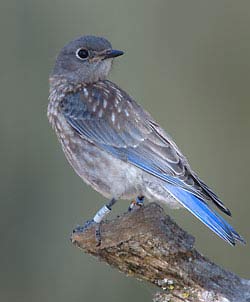Meet the Bluebirds: Wealth, Nepotism and Ungrateful Offspring

Get the world’s most fascinating discoveries delivered straight to your inbox.
You are now subscribed
Your newsletter sign-up was successful
Want to add more newsletters?

Delivered Daily
Daily Newsletter
Sign up for the latest discoveries, groundbreaking research and fascinating breakthroughs that impact you and the wider world direct to your inbox.

Once a week
Life's Little Mysteries
Feed your curiosity with an exclusive mystery every week, solved with science and delivered direct to your inbox before it's seen anywhere else.

Once a week
How It Works
Sign up to our free science & technology newsletter for your weekly fix of fascinating articles, quick quizzes, amazing images, and more

Delivered daily
Space.com Newsletter
Breaking space news, the latest updates on rocket launches, skywatching events and more!

Once a month
Watch This Space
Sign up to our monthly entertainment newsletter to keep up with all our coverage of the latest sci-fi and space movies, tv shows, games and books.

Once a week
Night Sky This Week
Discover this week's must-see night sky events, moon phases, and stunning astrophotos. Sign up for our skywatching newsletter and explore the universe with us!
Join the club
Get full access to premium articles, exclusive features and a growing list of member rewards.
Bluebird mothers dote over their boys. They provide them with plenty to eat and treat them better than other males.
Understandably, the boys hang around into early manhood. But if the family wealth disappears, they bolt like spoiled brats.
The Western bluebirds live in oak trees along the central coast of California. While young females leave the nest in late summer, their brothers tend to stay at home through winter and into the next nesting season.
"The Western bluebird fledglings stay on their parents' territory, living in cohesive groups where they sleep together in a cavity or nest box or in the mistletoe, forage together," explains Janis Dickinson, a research associate with the Museum of Vertebrate Zoology at the University of California, Berkeley. "And the mothers are nicer to their sons than they are to other males of the same age, even if those birds are members of their winter group."
Dickinson wondered just how devoted the fledgling males really were to the family. And was it the general nepotism, or just the accumulated wealth of food, that caused them to remain?
So in the territories of 13 bluebird families, Dickinson's team removed half of the mistletoe. The result: Only 8 percent of the young males stayed on. In the 13 unaltered territories, half the males stayed through winter.
The researchers observed no instances of the parents forcing the males to leave. Dickinson said the results provide the first evidence in the avian world that inherited wealth promotes family stability.
Get the world’s most fascinating discoveries delivered straight to your inbox.
"Resource wealth promotes delayed dispersal, leading to the continuation of relationships between offspring and parents prerequisite for cooperative family life," she said. "What our experiment shows is that reducing resource wealth causes sons to leave their parents, even if it means giving up nepotistic benefits."
Such a result was predicted by theories of both human and bird behavior.
"The idea that inherited wealth promotes family stability comes from studies of cooperatively breeding birds and helps expand our theoretical understanding of the evolution of human social behavior," Dickinson said.
Robert is an independent health and science journalist and writer based in Phoenix, Arizona. He is a former editor-in-chief of Live Science with over 20 years of experience as a reporter and editor. He has worked on websites such as Space.com and Tom's Guide, and is a contributor on Medium, covering how we age and how to optimize the mind and body through time. He has a journalism degree from Humboldt State University in California.
 Live Science Plus
Live Science Plus











